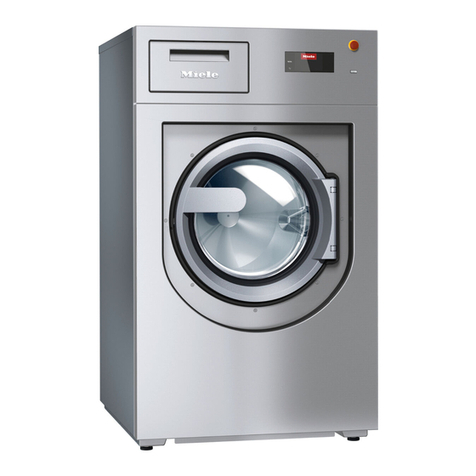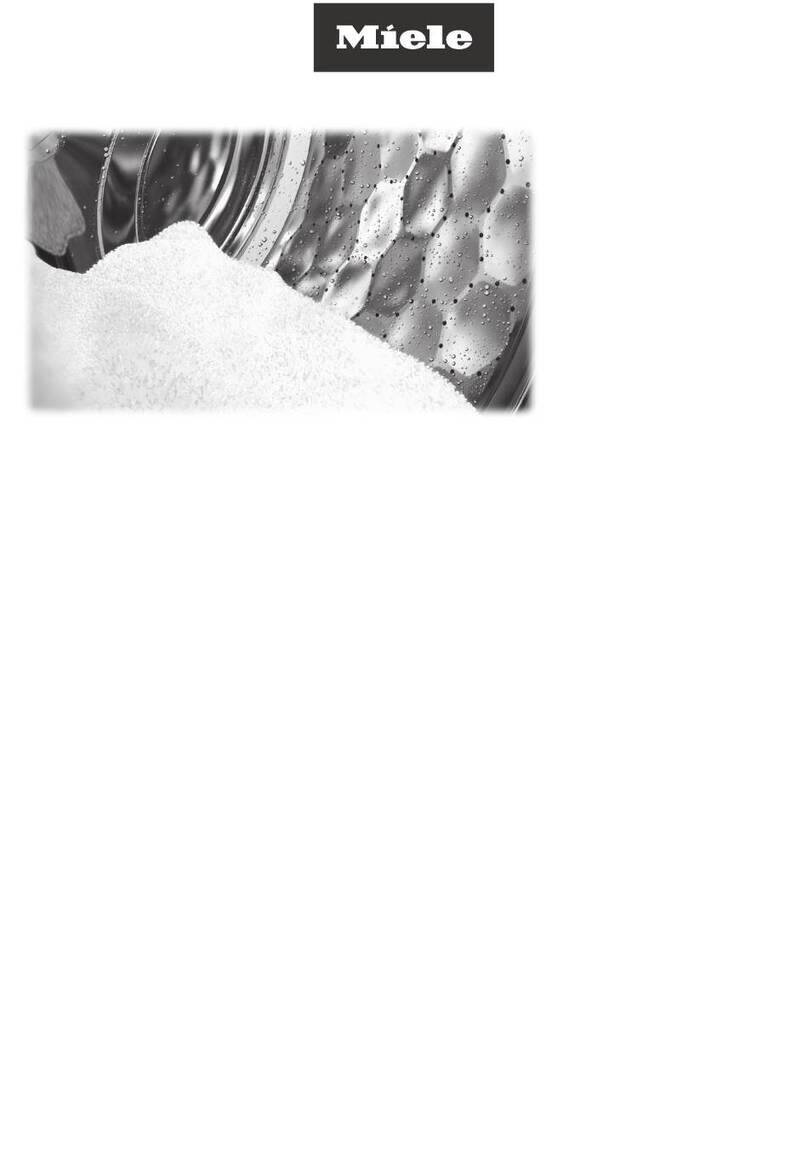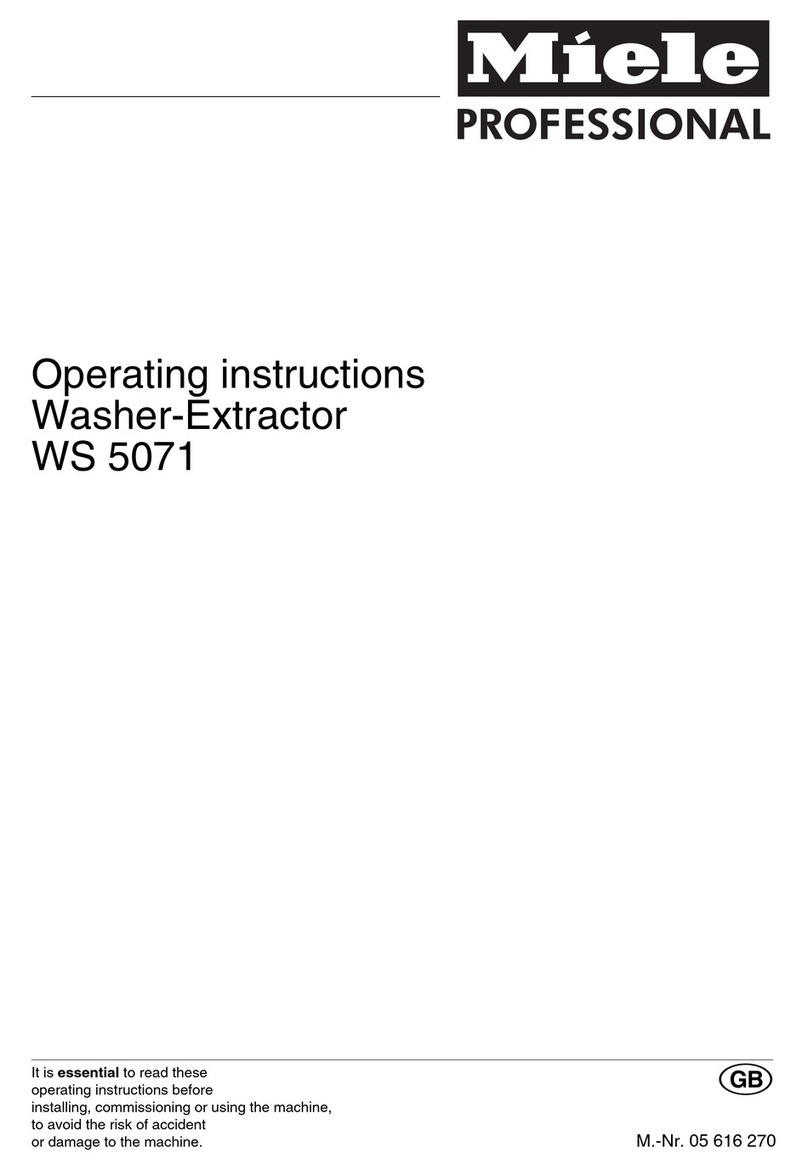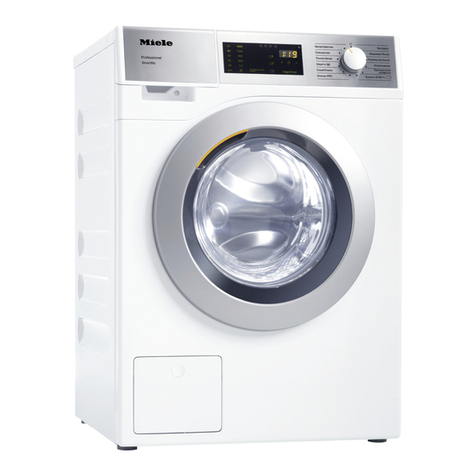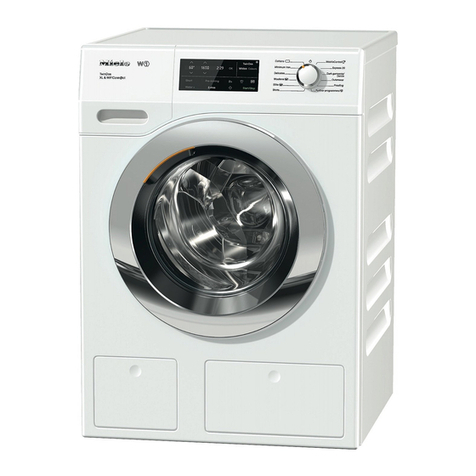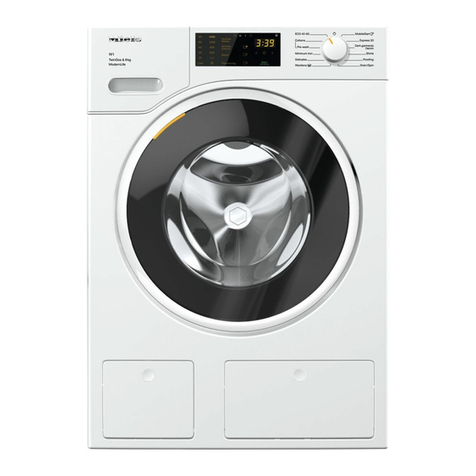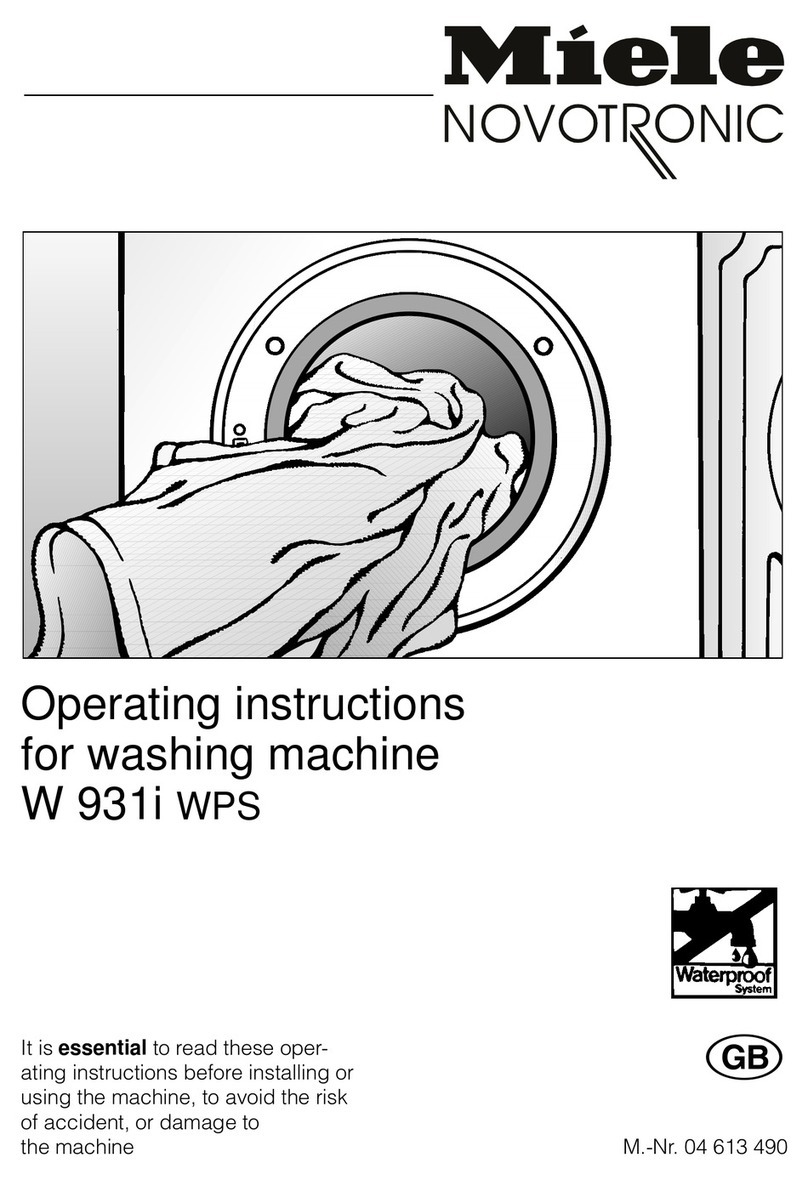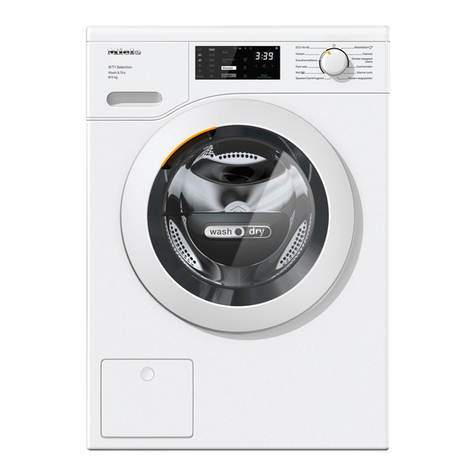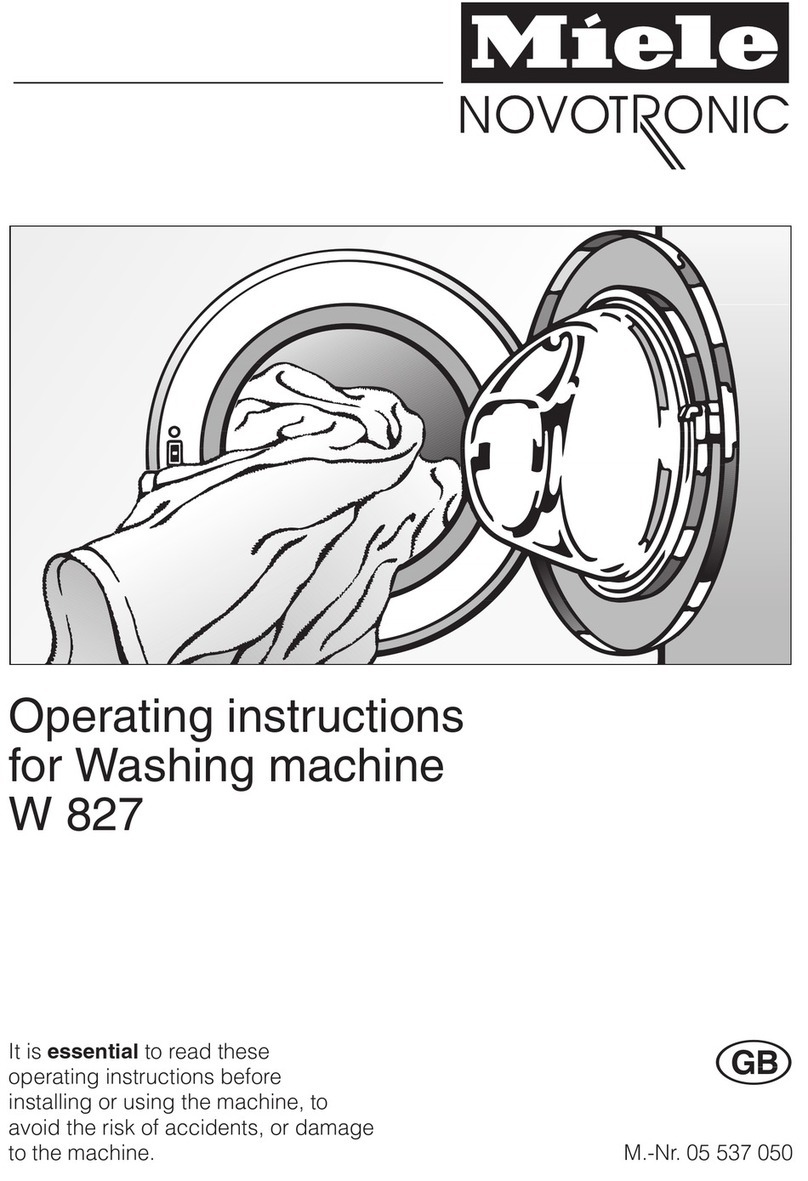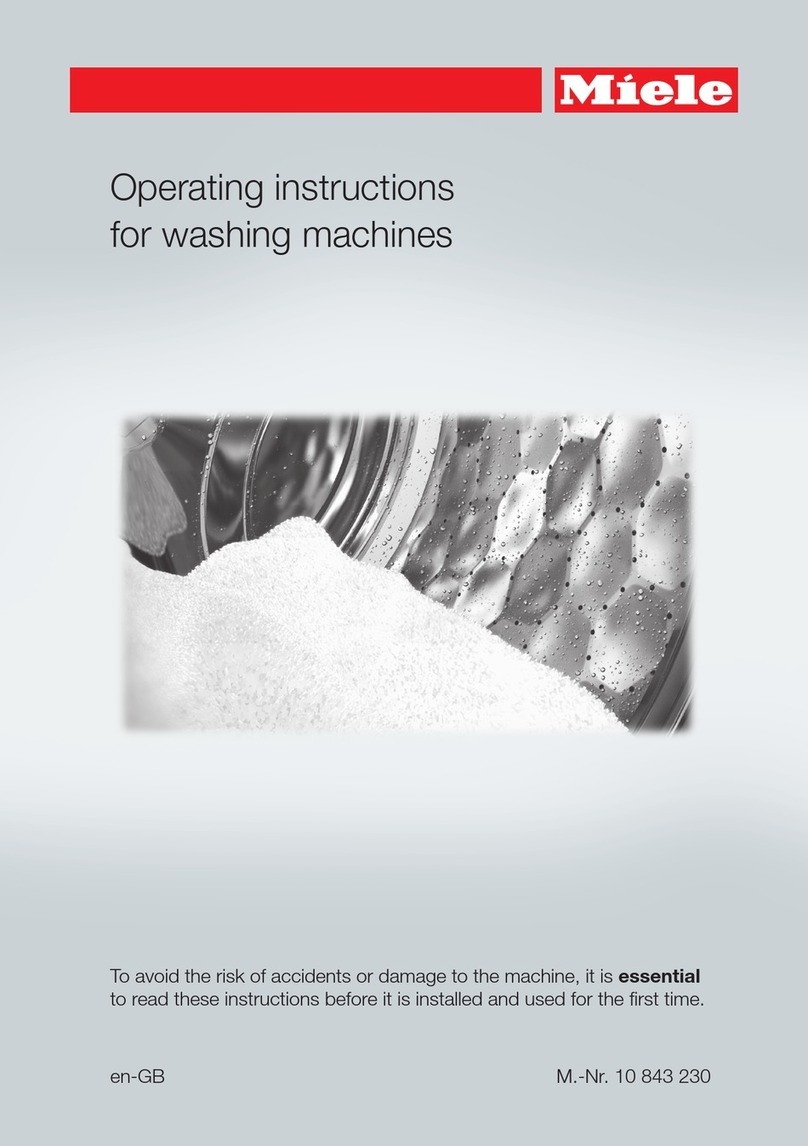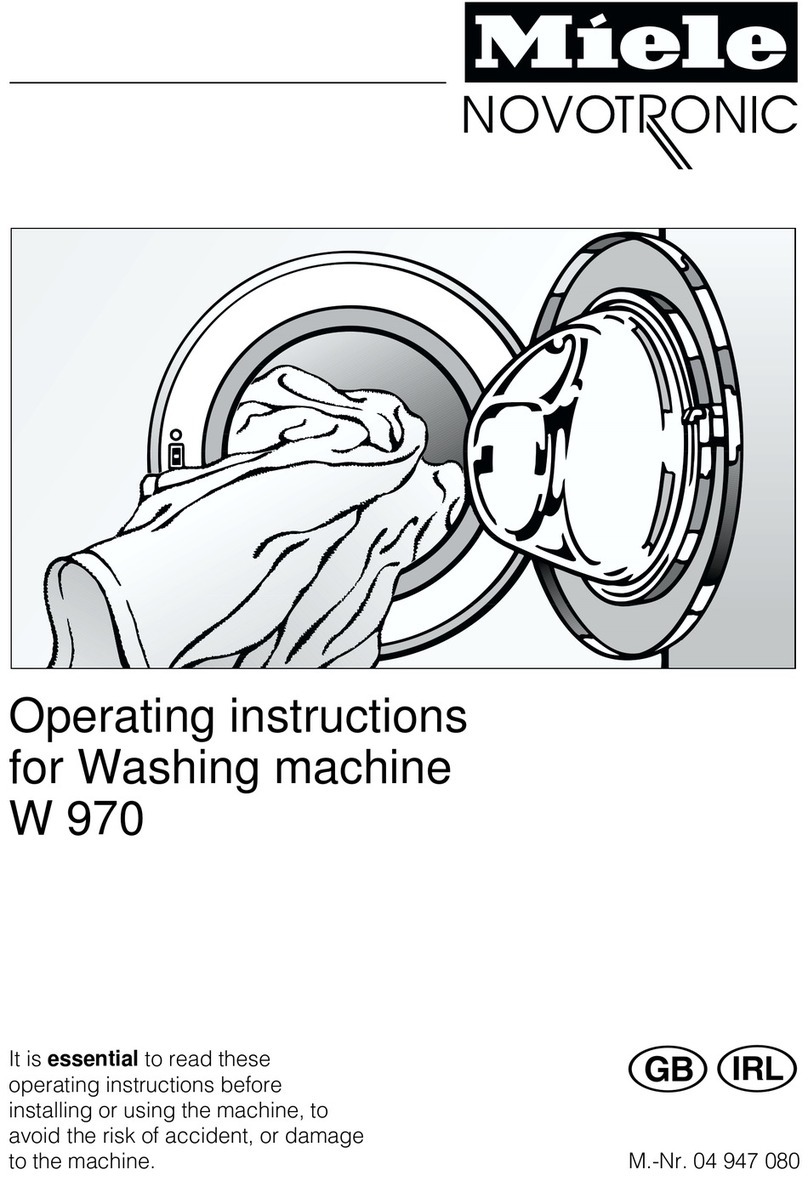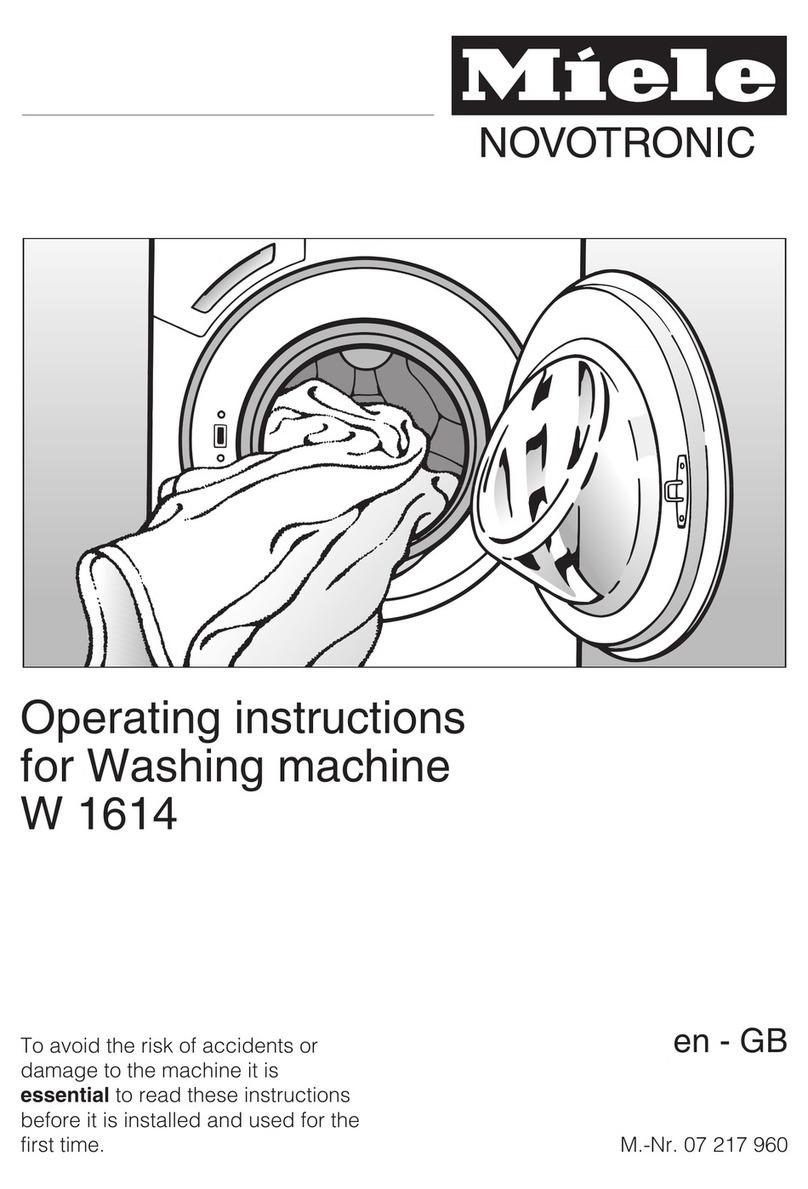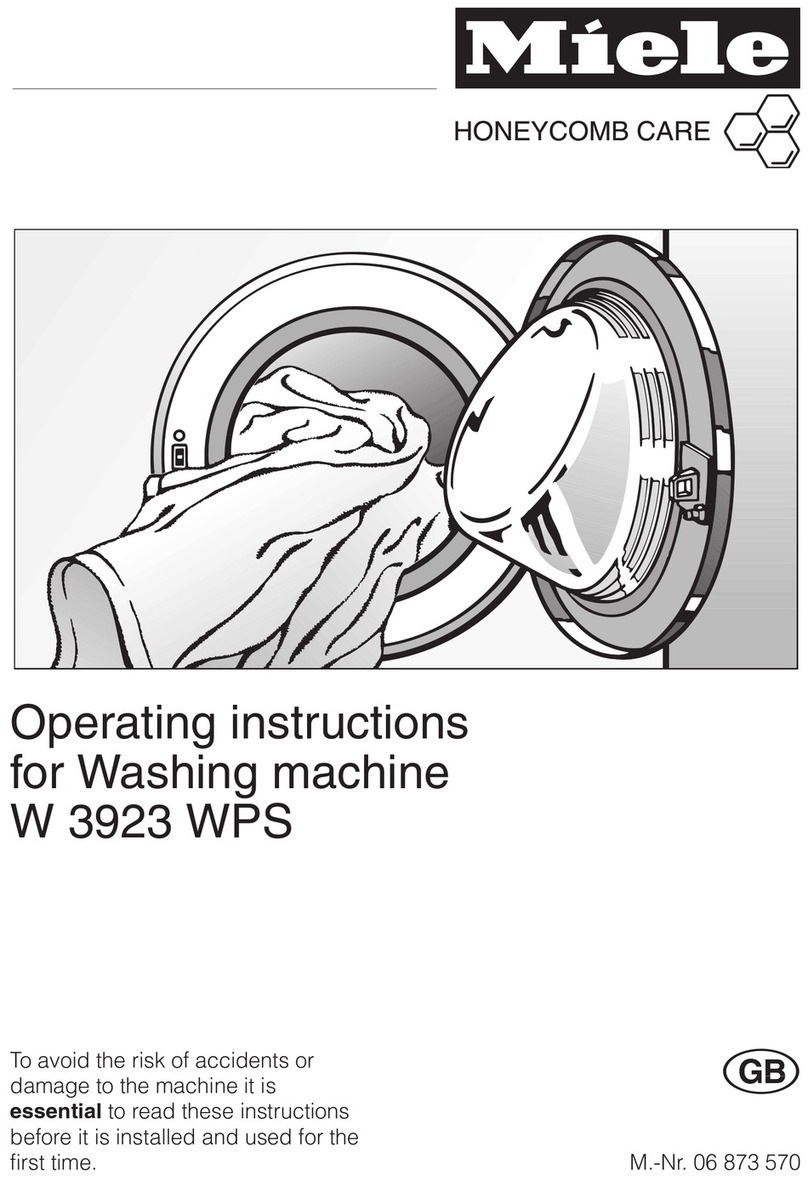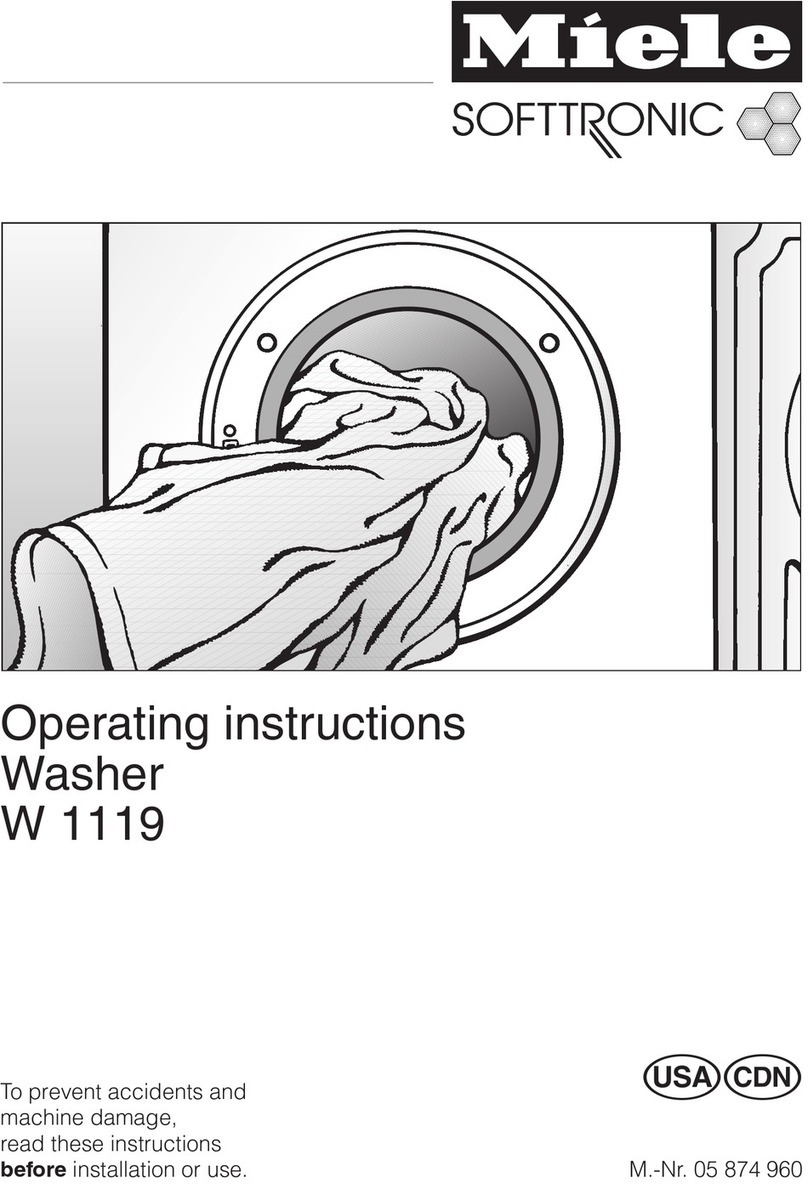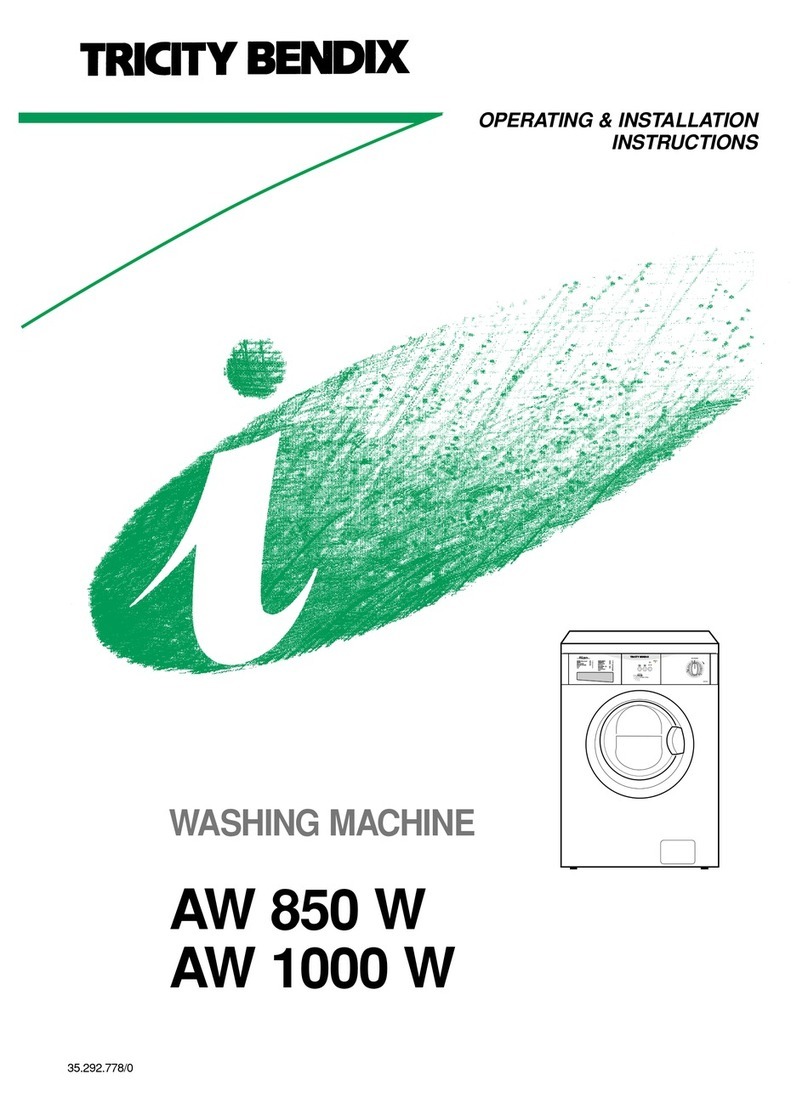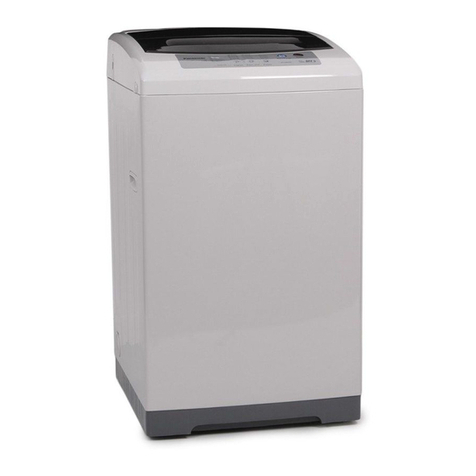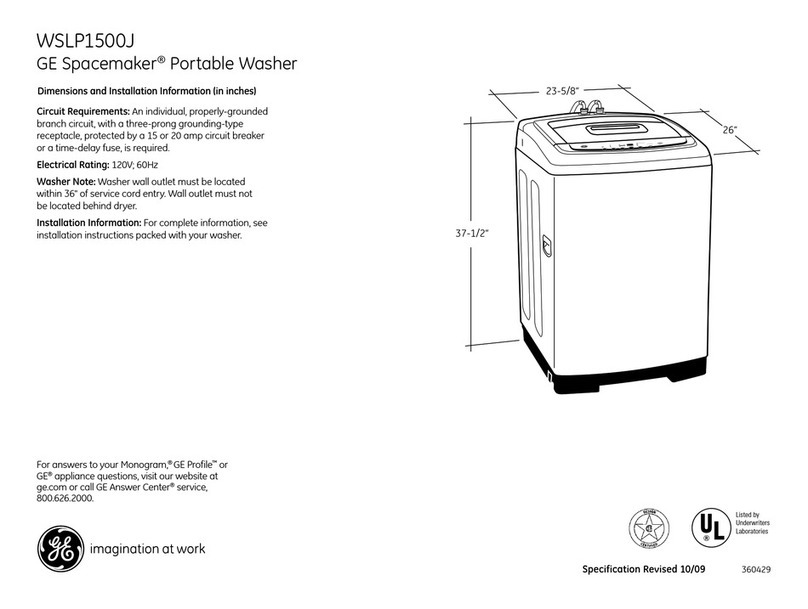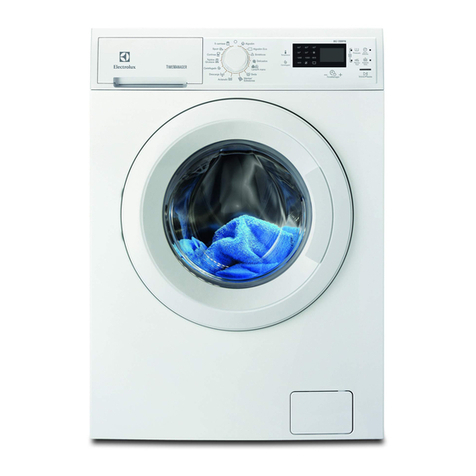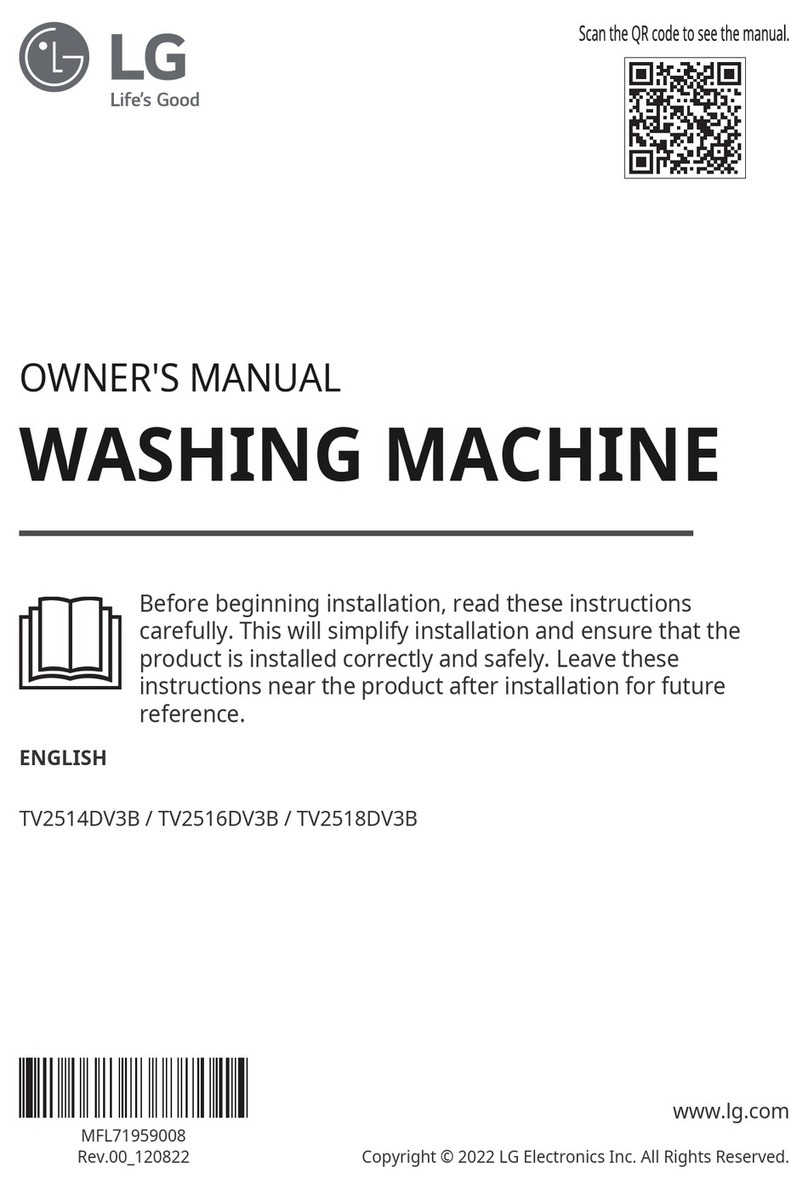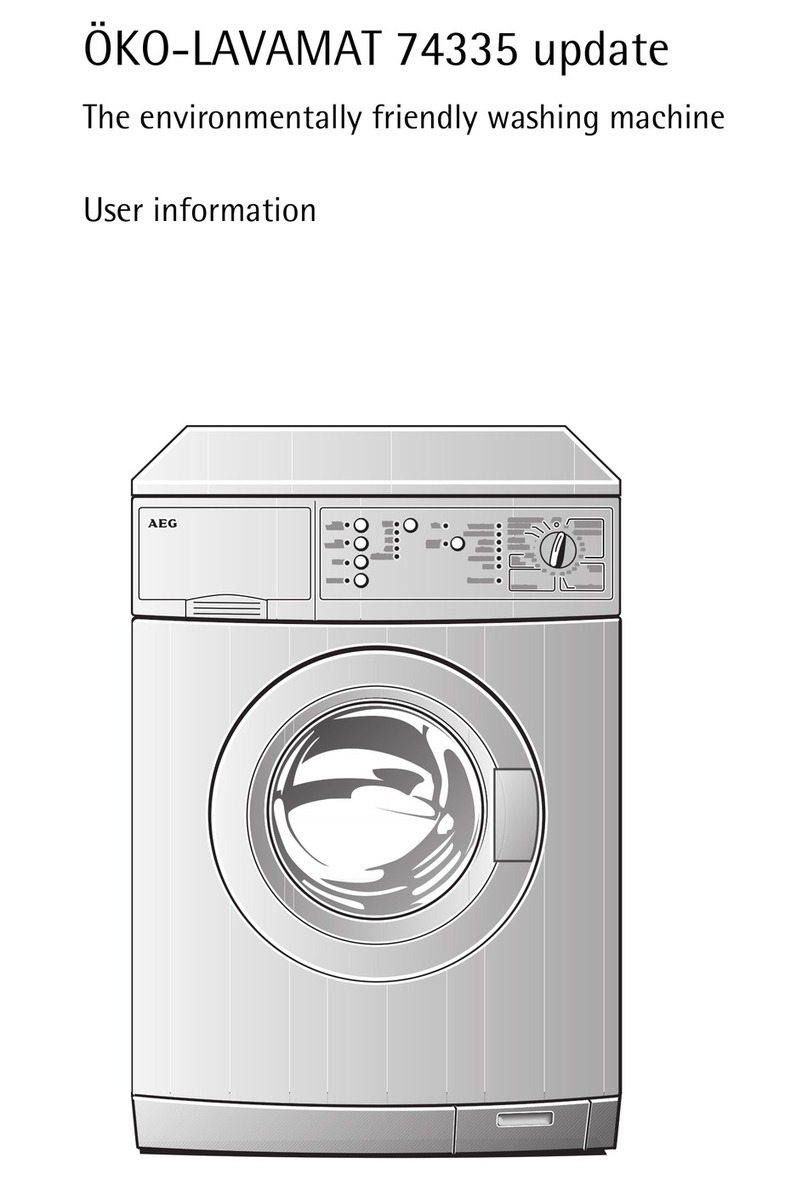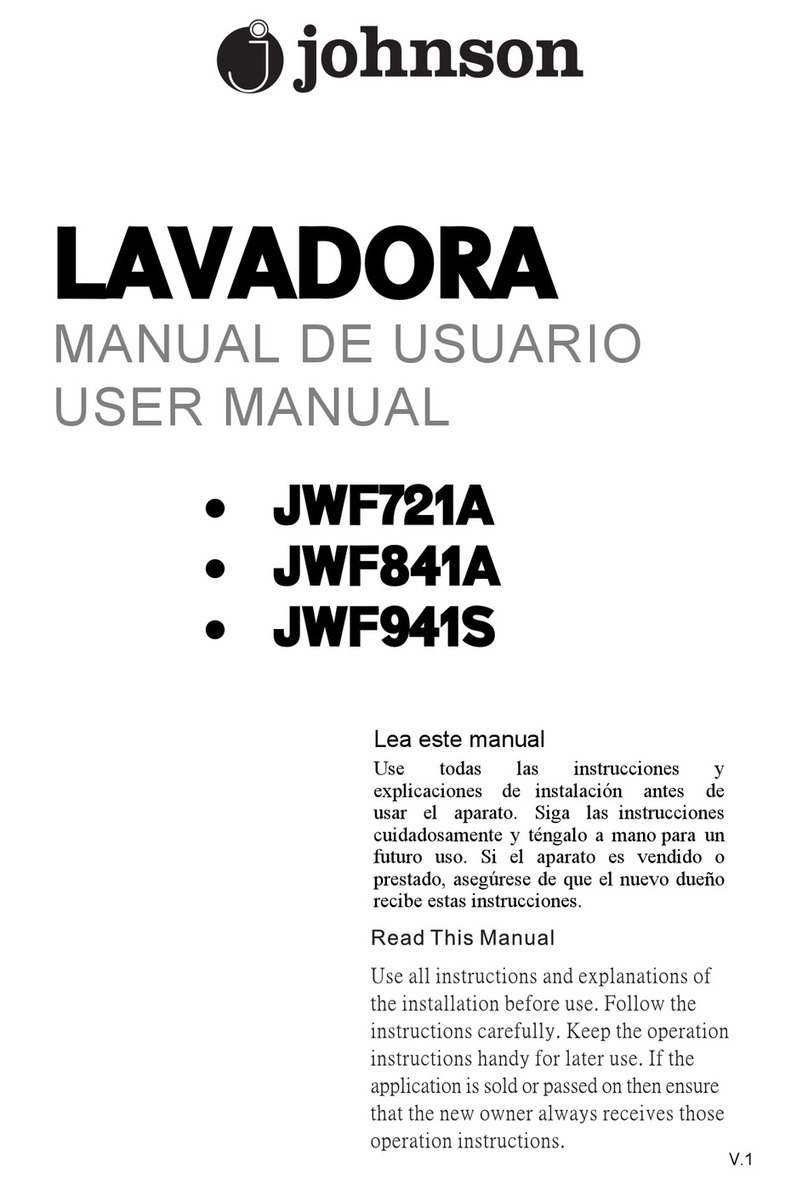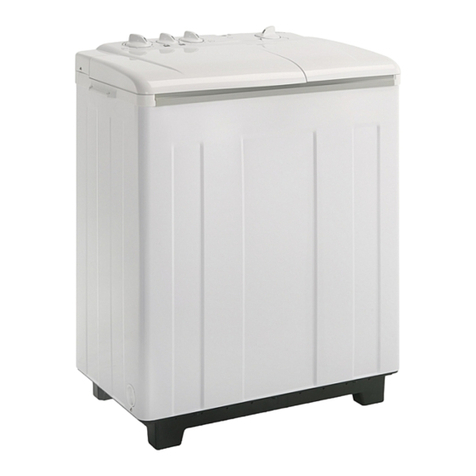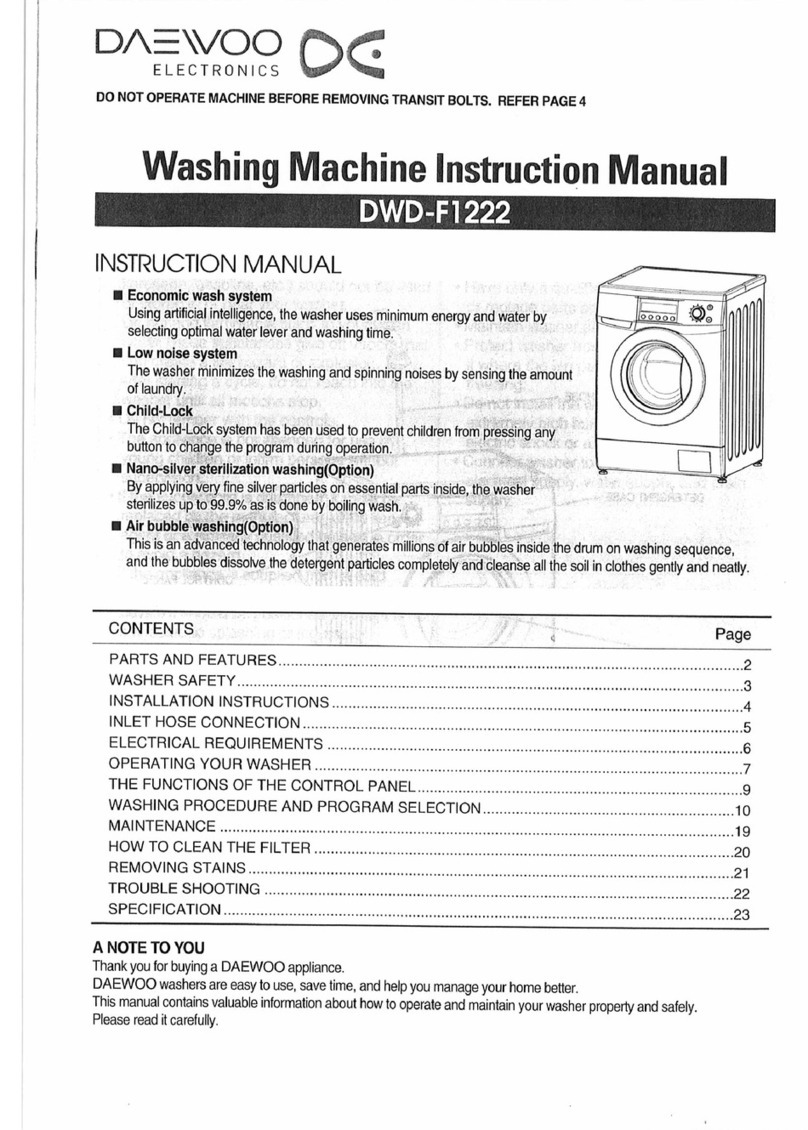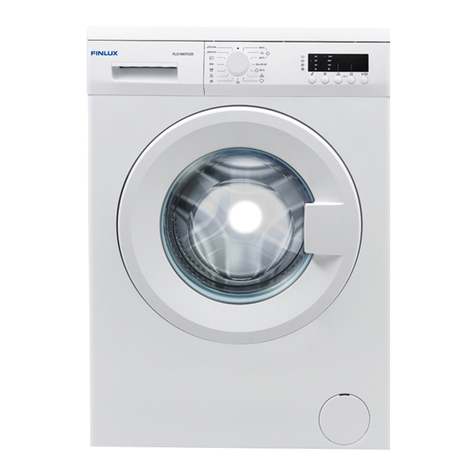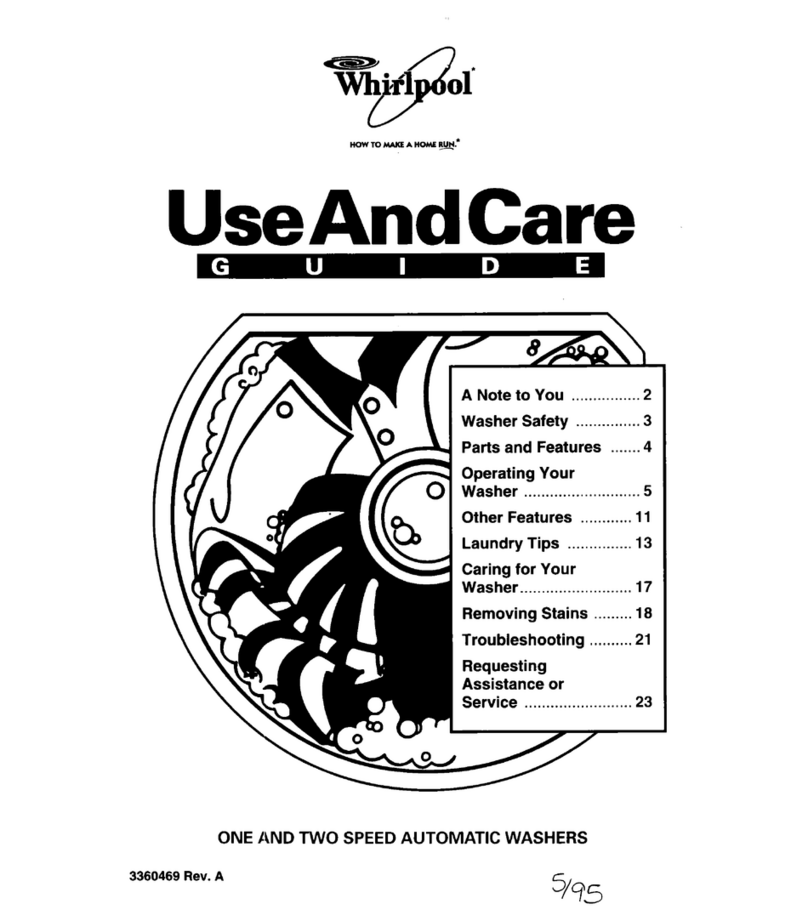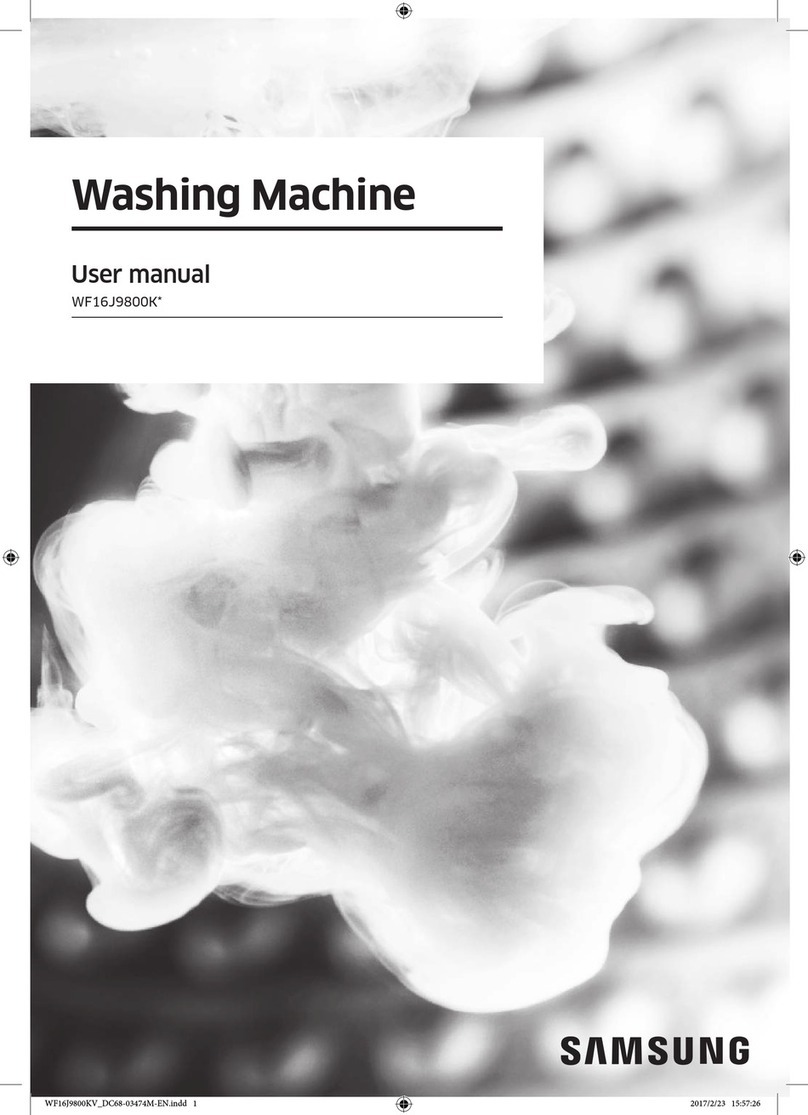The following points should be
observed to assist in maintaining
quality standards when processing
medical devices and critical labware,
to protect patients and to avoid
damage to property!
~If the machine is being used for
disinfection ordered by the authorities,
the steam condenser and its
connections to the rinsing chamber and
outlet discharge must be disinfected
before any repair or exchange.
~Only authorized persons may
interrupt a program and only in
exceptional cases.
~It is the responsibility of the operator
to routinely check that the required
cleaning and disinfection standards are
being met. Therefore, process results
need to be regularly tested and
documented, both thermoelectrically
and through inspection. For
thermochemical processes, additional
testing is required using chemical or
biological indicators.
~For thermal disinfection, the
appropriate temperatures and holding
times, as required by microbiological
and public health standards and
guidelines, must be used to achieve the
required degree of infection control.
~Disinfection programs that use a
chemical disinfectant at moderate
temperatures (for example 65 °C or
below) do NOT fulfill the requirement for
mandatory disinfection under §18 of the
IfSG. Such programs should only be
used when the items in question are
temperature-sensitive. The disinfection
parameters are based on the expertise
of the disinfectant manufacturer.
Always note their specifications for
handling, applications and efficacy.
The operator is responsible for the use
of any such thermochemical processes.
~If toxic chemicals may be present in
the wash cabinet, (e. g. aldehydes in
the disinfectant), beware of this risk
when interrupting a program and
opening the washer-disinfector. The
door seal and steam condensor must
always be checked for soundness.
~OR shoes should only be cleaned
and disinfected in a washer-disinfector
that has been installed for that purpose.
~Under certain circumstances, the
processing chemicals can cause
damage to the appliance. Consult Miele
Customer Service for
recommendations. For concerns
involving possible damage to the
appliance or materials, please consult a
Miele Application Specialist.
~Pre-treating (e. g. with cleaning
agents or disinfectants), some types of
soiling and the interaction of certain
processing chemicals can cause
foaming. Suds can have an adverse
effect on the results obtained.
Important safety instructions
6
